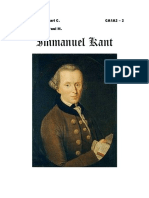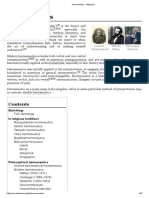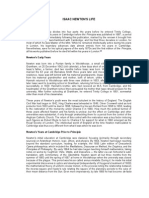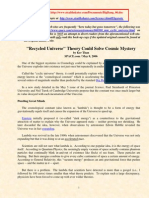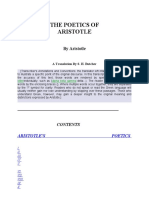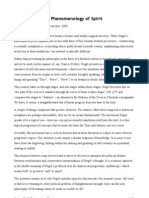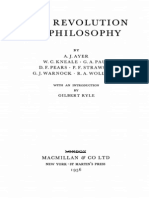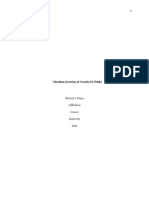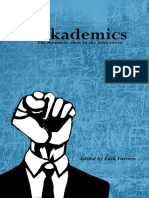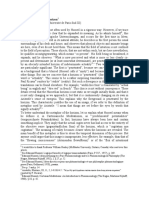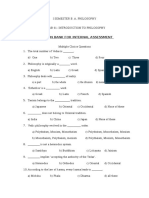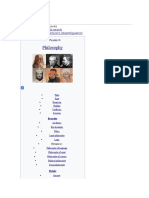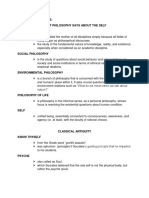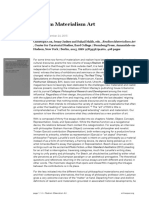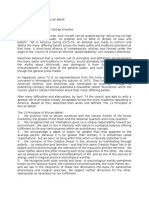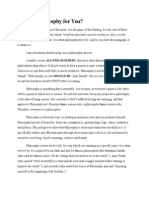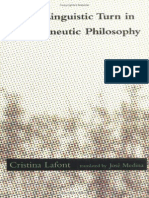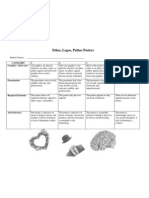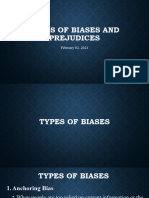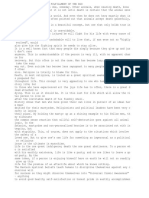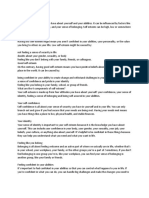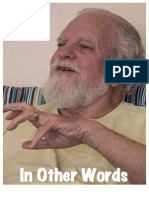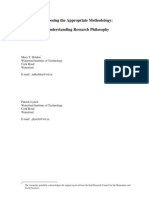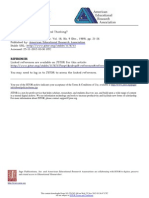1
HegelandAnalyticPhilosophy
PaulRedding
Itisgenerallythoughtthatanalyticphilosophyhasverylittleincommonwith
thephilosophicalapproachofHegel.Afterall,doesntHegelsabsoluteidealism
proclaimtheuniversetobeultimatelysomekindofmind,andisthisnotsimply
areflectionofapremodernreligiousconsciousnessratherthananapproachin
linewithamodern,scientificviewoftheworld?Fromthepointofviewofmany
contemporaryinterpretersofHegel,suchaviewmaybelittlemorethana
caricature,butitisstillawidelyheldone,andcanbetracedbacktotheearliest
daysofanalyticphilosophy.
GiventhegeneralinvisibilityofHegelwithintheanalytictraditionfor
mostofitshistory,itissoberingtoberemindedthatwhenBertrandRussellfirst
wenttoCambridgein1890hefoundaphilosophicalculturedominatedbythe
followersofKantorHegel(Russell,1959,p.30).Inhisearliestphilosophical
endeavoursRussellhimselfworkedwithintheHegeliantradition,butaftera
timecametobeconvincedthatrecentdevelopmentsinlogicshowedthedeep
flawsinHegelsthought.Besidesthis,RussellhadbecomeinfluencedbyG.E.
MoorewhohadswungfrombeingafollowertoanopponentoftheidealistF.H.
Bradley.InhiscriticismofidealismMoorehadseemedtoruntogetherelements
ofKantsidealismaboutformwithBerkeleysidealismaboutmatter,andthis
confusionbetweentheidealistdoctrinesoftheGermansandtheimmaterialist
doctrinesofBerkeleyhasseemedtopersistwithintheanalytictradition.
Ironically,Hegelhadbeenoneofthemostpowerfulcriticsofthewayofideas
conceptionofthemindonwhichBerkeleysimmaterialismwaspremised.Infact,
itwasjustthisantisubjectivistdimensiontoHegelsphilosophythatcametobe
appreciatedbysomethinkerswithintheanalytictraditioninthesecondhalfof
thetwentiethcentury,duringaperiodinwhichanalyticthoughtmovedaway
fromthemoreempiricistorientationsthathadcharacterizeditsearlierphases.
ThuswhenWilfridSellarsinhiscelebratedsetoflecturesof1957later
publishedunderthetitleofEmpiricismandthePhilosophyofMindhasan
imaginaryinterlocutor(alogicalatomist)refertoSellarssownaccountashis
incipientMeditationsHegelinnes(sic)(Sellars,1997,20),hewasnotbeing
entirelyflippant.Initsearlyyearsanalyticphilosophyhadgonethrougha
linguisticturninwhichthecapacityforthoughthadbeentightlylinkedtothe
capacityforlanguageaturnsimilartothatinGermanintellectuallifeinHegels
time(Lafont,1999;ONeillSurber,2006).Fromsuchconsiderations,bymid
centuryanumberofleadinganalyticphilosopherswerecomingtoadvocatea
typeofconceptualholismopposedtothelogicalatomismwithwhichRussell
hadattackedHegel.Moreover,philosopherslikeLudwigWittgenstein,J.L.Austin
andWilfridSellarswerestressingthesocialandpragmaticdimensionof
languageinwaysthatagainrecalledHegelsattemptstogroundthoughtin
historicalpatternsofhumaninteraction.ItissuchHegeliandimensionsofthe
thoughtofSellarsandWittgensteinthathasbeenrecentlytakenupintwo
influentialworksofanalyticphilosophy:JohnMcDowellsMindandWorld
� 2
(McDowell,1994)andRobertBrandomsMakingItExplicit(Brandom,1994).
InthelightoftheframeworkelaboratedbySellarsandhisfollowers,it
hasbecomeeasiertograspcertainparallelsbetweenHegelianandanalytic
thought.Thus,WillemdeVries,stressingthatthecentralideaofHegelsidealism
wasthatoftheautonomyofreason,haspointedtothevastgulfbetween
BerkeleysimmaterialismandHegelsidealism.1
Whatisattheheartoftheideaoftheautonomyofreasonisnotreasons
separatenessfromsomething(oranything)else,suchasmaterialnature,
buttheselfdeterminationofreason.Hegeldoesnotdefendthe
autonomyofreasonbyrunningtoasubstancedualismbutbypointing
outthatthereisalogicalspaceofreasonswithinwhichallourdiscourse
occursandwhichhasastructureuniquelyandirreduciblyitsown.In
particular,thesalientstructuresinthelogicalspaceofreasonsare
normativestructuresofjustificationandenlightenment;theyaredistinct
fromthecausalstructuresofthephysicalandeventhehistoricalrealm,
thoughsuchcausalstructurescan(indeed,must)beexploitedbyandfor
thejustificatoryandilluminatorypurposesofreason.(deVries,2009,pp.
2312)
Theideaofthethoughtinhabitingthislogicalspaceofreasonsinvirtue
ofthesocialnormsgoverningverbalreactionstoasentenceexpressingitwas
centraltoSellarssalternativetotheformofempiricismthathadflourishedin
theearlydecadesofanalyticphilosophy.Opposingthetypeofempiricist
epistemologyoftheearlyRussellandothers,inwhichafoundationfor
empiricalknowledgewasconceivedintermsofthemindsacquaintancewith
GivenssuchasRusselliansensedata,Sellarsdenouncedasmythicaltheidea
ofacertainandpresuppositionlessknowledgeofsomethinggivenimmediately
insensoryexperience:theMythoftheGiven.Asanalternativeheproposeda
conceptionofjudgmentsasfallibleassertionsmadeinthecontextoflanguage
gamesinvolvinggivingandaskingforreasons.Inquiryisarationalenterprise
notbecausetruthcanbetransmittedtobeliefsbysoundlogicalinferencesfrom
purportedlycertainfoundationalbeliefs;itisrationalbecausefallibleclaims
canbecorrectedinthefaceofcriticismswithinalinguisticcommunityholding
itselftosharedrationalnormsthatarethemselvesopentocorrection.
ThemostsystematicattempttodevelopSellarssprojectinwaysthat
retrieveHegelsphilosophyisundoubtedlythatofRobertBrandoms
inferentialistandpragmatistapproachtosemantics(Brandom,1994and
2002).TheretrievalofHegelwithinanalyticthoughtinprojectslikethatof
Brandomsisinitscomparativeinfancy;theymay,however,givecauseto
reassessthedismissalthatHegelhadsufferedatthehandsofRussellintheearly
yearsoftheanalyticmovement.
Russell,HegelandtheLogicalRevolution
InthecontextofhisearlyworkonthephilosophyofLeibniz(Russell,1900),
Russellhadcometotheopinionthataninadequatetreatmentofrelationshad
beencrucialnotonlytothephilosophyofLeibnizhimselfbutalsotothesystems
ofSpinoza,HegelandBradley(Russell,1959,p.48).Leibniz,heclaimed,had
conceivedofeveryrelationasgroundedinthenaturesoftherelatedterms,
(ibid.,p.43)andthisideahadbeenaconsequenceofhisadherencetotraditional
logicinwhicheverypropositionattributesapredicatetoasubjectandevery
factconsistsofasubstancehavingaproperty(ibid.,p.48).Butthisconception
oflogichadbeensweptawaybythelogicalrevolutionofthelatenineteenth
centuryinitiatedbyFregesBegriffsschriftpublishedin1879(Frege,1967).The
newlogicpermittedmultiplaced(polyadic)predicates,andsoallowedthe
representationofrelationalfacts.RelyingontheAristotelianmonadic
conceptionofpredication,theontologicalsystemsofSpinoza,HegelandBradley
couldonlyconceiveofrelationsasinternaltosomeunitary,absolutesubstance.
Mr.Bradleyhasworkedoutatheoryaccordingtowhich,inalljudgment,
weareascribingapredicatetoRealityasawhole;andthistheoryis
derivedfromHegel.Nowthetraditionallogicholdsthateveryproposition
ascribesapredicatetoasubject,andfromthisiteasilyfollowsthatthere
canbeonlyonesubject,theAbsoluteThusHegelsdoctrine,that
philosophicalpropositionsmustbeoftheform,theAbsoluteissuchand
such,dependsuponthetraditionalbeliefintheuniversalityofthe
subjectpredicateform.Thisbelief,beingtraditional,scarcelyself
conscious,andnotsupposedtobeimportant,operatesunderground,and
isassumedinargumentswhich,liketherefutationofrelations,appearat
firstsightsuchastoestablishitstruth.(Russell,1914,p.48)
Theapplicationofthenewlogicalresourcesbecamecentraltothe
methodofanalysiswithwhichthoughtcouldbefreedfromthedeadhandof
Aristotelianlogic.Analysisprecededbyatypeofretranscriptionofclaimsfrom
outofthesubjectpredicategrammarofeverydaylanguageintoamore
adequatelogicalform.Herethemodelwasatreatmentofuniversallyquantified
affirmativejudgmentsallowedbythenewlogic.Fromalogicalpointofview,a
judgmentsuchasallGreeksaremortalshouldnotbethoughtofassaying
somethingaboutatypeofcollectivesubject,allGreeks,onthemodeloftheway
SocratesismortalsayssomethingaboutSocrates.Rather,theformershouldbe
analyzedasauniversallyquantifiedconditional.AllGreeksaremortaltellsus
thatifsomethingisaGreek,thenitismortal,andthesameprinciplecanbe
appliedtoclaimsabouteverything,undercuttingtheideaofthetypeofabsolute
substancethatRussellbelievedheperceivedinHegel.
Russellscelebratedversionofthisstyleofanalysiswasthatfoundinhis
theoryofdescriptionscontainedintheessayof1905,OnDenoting(Russell,
1956).ThereRussellusedthistypeofretranscriptiontobearonsentencesthat
seemedtoexpressameaningfulthoughtaboutnonexistentobjects.Fregehad
� 4
claimedthatthethoughtorpropositionexpressedbyasentencehadtobe
eithertrueorfalse,butwhilethesentenceThepresentkingofFranceisbald
seemedtoexpressesathought,therewasatthattimenopresentkingofFrance,
thestateofwhoseskullcouldmakethatthoughttrueorfalse.Russellthen
broughtanalysistobearonthisproblembytranscribingthesentenceintothe
newlogicalsyntaxsoastoeliminatetheoffendingsubjectdefinitedescriptionin
asimilarwaytothatinwhichhehadeliminatedcollectivetermslikeallGreeks
inthesentenceallGreeksaremortal(ibid.p.482).Thatis,areductionofall
propositionsinwhichdenotingphrasesoccurtoformsinwhichnosuchphrases
occur(ibid.)eliminatedtheproblemofphraseswhichonlypurportedlydenoted.
Thenewlogichadprovidedanexceptionallyclearwayofshowinghow
logicalreflectioncouldaidinthesolutionofphilosophicalproblems,butRussell
exaggeratedtherevolutionarystatusofanalysis,wasoverlyoptimisticabout
howthenewlogiccouldbereconciledwithtraditionalempiricistassumptions,
andmisinterpretedHegelasaneasytargetofthenewanalyticcritique.In
retrospect,itisclearthatthegermsofthenewmethodofanalysis,alongwith
therecognitionoftheproblemsitposedforempiricism,werealreadypresentin
theidealisttraditionthatRussellhadcondemnedintermsofitsfatallyflawed
logic.
AnIdealistAnticipationofAnalysisinPhilosophy
Whenrecountinghisearlyhistoryin1959,Russelltoldoffirstlearningofthe
treatmentofuniversallyquantifiedjudgmentsasconditionalsfromtheItalian
logicianGiuseppePeano,althoughheattributestheinsighttoFrege(Russell,
1959,52).ButinafootnotetotheoriginalOnDenoting(Russell,1956,p.43n),
hehadattributedtheideatoBradleysThePrinciplesofLogic,whichhehadread
andstudiedinthe1890s,whileBradleyhimselflinkedhisaccounttotheKantian
J.F.Herbartstreatmentofcategoricaljudgmentsashypotheticalsintheearly
nineteenthcentury(Bradley,1883,bk.1,ch.2).Indeed,behindHerbart,the
basicideacanbefoundinWolffandLeibniz(Korte,et.al,2009,pp.5226).
Moreover,asforthemoregeneralstrategyofanalysismodeledonit,whilethe
newlogicprovidedawayofmakingthistypeoflogicalreparsingofjudgment
formsexplicit,theprinciplebehinditwasnotnovel.Theidea,Isuggest,hadbeen
clearlypresentinHegelsconceptionofreflection,andearlierinLeibnizs
conceptionofthemakingdistinctofclearbutconfusedideasaprocedure
thathetermed,definitionoranalysis.Moreover,theuseofsuchanalysesin
LeibnizandHegelwasboundupwiththataspectoftheirthoughtthatcametobe
celebratedbySellars,theircritiquesoftheMythoftheGiven.
Leibniz'sversionofthecritiqueoftheMythoftheGivencanbefoundin
ishiscriticismofLockeinNewEssaysonHumanUnderstanding(Leibniz,1996),
andinhisownlogicalinterpretationofDescartestheoryofclearanddistinct
ideas.Speakingofthecoldnessandhardnessfeltinapieceofice,orofthe
whitenessseeninalily,Lockedeclaresthatthereisnothingcanbeplainertoa
manthantheclearanddistinctperceptionhehasofthesesimpleideas(Locke,
1975,volumeone,bk.II,ch.II).ButLeibnizinsiststhatasensoryideathoughtof
asred,say,wouldbeclearbutconfused(Leibniz,1996,p.255).Tobemade
� 5
distinctitwouldneedtohaveitsinnerstructure...deciphered(ibid).Allclear
ideasaredistinguishingbutonlythosewhicharedistinguished,i.e.whichare
inthemselvesdistinctandwhichdistinguishintheobjectthemarkswhichmake
itknown,thusyieldingananalysisordefinitionaredistinct(ibid,pp.2556).
ForLeibniz,then,oneperfectsknowledgebyprogressingfromsome
initiallyclearandconfusedperceptuallygivenrepresentationofanobjecttoa
clearandmoredistinctone.Leibnizsideaofthecritiqueofafoundationalrole
forperceptualgivens,aswellasaconceptionofknowledgeasprogressingvia
thereplacementofimmediateandthusconfusedideasbymediatedanddistinct
ones,isalsofoundinHegel,ascanbeseeninhisdiscussion,intheLectureson
thePhilosophyofSpiritfrom18278,ofthemovementfromrepresentation
[Vorstellung]tothought[Denken](VGeist(Hegel,2007),45168).
Hegeldescribesthecontentofrepresentationisgiven[gegebenen]and
immediatelyfound[unmittelbarVorgefundenes](VGeist,p.195,(Hegel,2007,
p.213)).Representationisessentiallydifferentfromconcept[Begriff]and
thought[Gedanken]andtohavearepresentationmeansthatIdonotyetknow
theobjectinitsspecificity[ordeterminacy[Bestimmtheit](VGeist,p.196,
(Hegel,2007,p.213)).Whilerepresentationinvolvesconcepts,herethe
universalisnotyetagenuineuniversalbutinfactitselfmerelyaparticularin
oppositiontootherparticulars(VGeist,p.224,(Hegel,207,p.236)).In
Leibnizianterms,whatHegelcallsrepresentationsareclearbutconfused.Going
beyondrepresentationtofullyconceptualthoughtinvolvesdefinitioninwhich
Istatethespecies,theuniversal,andalsostatethedeterminacy,theessential
determination[diewesentlicheBestimmtheit].Andinsodoing,Ihavegone
beyondtheformofrepresentationtothedeterminationsoftheconcept[zuden
BestimmtheitendesBegriffs](VGeist,p.196,(Hegel,2007,p.213)).In
comparisontorepresentation,suchcontentsare,wemightsay,clearand
distinct.
Thethreefolddistinctionwithinformsoftheoreticalintentionalitythat
Hegelgivesinthelectures(intuition,representation,thought)hasaparallelwith
hisdiscussionofthethreeshapesofconsciousnesstwentyyearsearlierinthe
openingchaptersofhisPhenomenologyofSpirit(Hegel1977;PhG).Inchapter1,
Hegelcriticizestheassumptionthatknowledgecanbeconstructedonafirm
basisofwhathecallssensecertaintyeffectively,atypeofphenomenallygiven
contentakintoLockesnotionofasimpleideaofacolour(andequivalentto
intuitioninthediscussionoftheoreticalspirit).AshasbeennotedbyWillem
deVries(deVries,1988and2008),Hegelstreatmentofsensecertaintyhasclear
parallelswithSellarsscritiqueoftheMythoftheGiven(Sellars,1997).In
Sellars'sversion,theGivenisconceivedalongthelinesofRusselleansense
data,acquaintancewithwhichsupposedlygroundsallpropositionally
contentfulknowledgebydescription(Russell,1912).Sellarsspointseemstobe
thatpurportedknowledgeofsimplesensorygivenslikethoseofcolourcannot
serveasafoundationforknowledgebecausetheycannotbequarantinedfrom
generaltheoreticalbeliefsabouttheworld.Aviewersknowledgethatthistieis
blue,forexample,iscontingentuponassumptionsabouttheconditionsunder
whichitisviewed:werethelightingconditionsabnormal,onemightmistakea
bluetieforagreenone.Furthermore,asMcDowellhasstressed(McDowell
� 6
1994),thatexperiencecanplayajustificatoryroleinjudgmentsuggeststhatit
musthaveaninternalarticulation,suchasapropositionalcontentthecontent
ofexperiencemustbemoreakintothatknowninknowledgebydescriptions
thanbareacquaintance.Thatanypurportedatomicknowledgeofimmediately
givenperceptualobjectsisultimatelydependentonsomemoreencompassing
theoreticalknowledgeoftheworldisalsoacentralfactorofHegelsaccountof
theprogressionoftheshapesofconsciousnessintheopeningchaptersof
PhenomenologyofSpirit.
HegelscritiqueoftheGiveninthePhenomenologyofSpiritgoes
throughthreestages.First,heattemptstoshowthatthepurportedobjectsof
sensecertaintycannotbeconceivedasfreeofcontradiction.Importantly,tobe
freeofcontradictionisLeibnizsantiLockeancriterionforatruesimpleidea
(dePierris,2002).2ForHegelitwouldseemthatthecontradictorynatureof
simplephenomenalGivensisconsequentuponthetensedcharacteroftheway
theyaredemonstrativelypickedoutasperceptualobjects.Iamawareofthis
content,presenthereandnow,butwiththepassageoftimeitturnsinto
somethingelse,aswhenthenowofnightturnsintodaytwelvehourslater
(PhG,p.64,(Hegel,forthcoming,95)).Thatis,asensedatumsimplypickedout
demonstrativelycouldnotbethesubjectofpredicationforajudgmentwitha
stabletruthvalue.Thatthepurportedobjectsgivenintheseshapesof
consciousnessturnouttobeselfcontradictoryrequiringtheirreplacementbya
differentshapeisthemotordrivingthetransitionsbetweenthesuccessive
shapes,andthenewGiventhathadcometoreplacethatofsensecertainlythat
Hegelcallsperception(seeminglymorelikeanAristoteliansubstancethana
Lockeandeterminatesimpleidea)suffersafatesimilartosensecertaintyitself.
Inturn,then,perceptionisreplacedbytheunderstandingwhoseGivensare
conceivedmoreastheoreticalpositssuchasforcesthansubstances(PhG,p.94,
(Hegel,forthcoming,152)).But,ofcourse,atheoreticalpositisnotgivenatall.
Itispositedbyasubjectaspartofanexplanationofwhathadbeenconsidered
asgiven.ThenexttransitioninChapter4isfromconsciousnesstoself
consciousnessinwhichthesubjectisawareofitsownpositingactivity.
Sellarssapproachtomentallifewastomodelitonlinguisticactivity,and
withthiswecanthinkoftheprogressthroughtheHegelianshapesof
consciousnessasaseriesofreconsiderationsofwhatcomponentsofmental
contentareakintoreferringpartsofspeech.Sensecertaintyismodeledonthe
baredemonstrativeasthatwhichlinkstalktotheworld.Perceptionmightbe
thoughtasperhapsmodeledonanAristotelianthissuch(deVries,2008),a
combinationofademonstrativeandasortalterm.Themovementfrom
perceptiontotheunderstandingmightthereforebethoughtasakintoclassical
Russelliananalysisinwhichasentencewithanonlyapparentlyreferringtermas
thesubjectofpredicationisreplacedwithasentenceofdifferentlogical
structure.BehindRussellsunderstandingofanalysiswasaconceptionofan
ultimateendpointinwhichsensedatawerearrangedinwaysakintoLockean
patternsofdeterminatesimpleideas.Butthisanalysiswaspremisedonthe
problematicMythoftheGiven,theinadequacyofwhichhadbeenshowninthe
PhenomenologysChapter1.Incontrast,Hegeliananalysismightbeseenas
leadinginthedirectionoflater,moreholisticandpragmaticapproachesto
languagelikethatofQuine.
� 7
InQuineananalysis,propernamescametoundergothefatethatdefinite
descriptionshadsufferedinthehandsofRussell.Selfconsciouslyrevivingthe
medievaltraditionoftreatingsingulartermsasuniversals(Quine,1960,p.
181),Quine,wastotreatpropernamesaspredicates.Alltalkofsingular
referencewas,asQuineputit,onlyapicturesquewayofalludingtothe
distinctivegrammaticalrolesthatsingularandgeneraltermsplayinsentences
(ibid.,p.96).Asingulartermneednotnametobesignificant(Quine,1961,p.9
emphasisadded).Withregardstoreferenceitself,Quinewasexplicit:forhimthe
partsofnaturallanguageclosesttoreferringtermswererelativepronounslike
thatorwho,theinformalequivalentsofthevariable.ForQuine,everythingwe
talkaboutshouldproperlyberegardedasaposits,liketheimperceptibleposits
ofourmostsuccessfulscientificexplanations.WhileRussellhadreactedtothe
problemsoftheobjectsofthePhenomenologysChapter2bygoingbacktothe
startofChapter1,Quineseemstohavepushedontotheradicalconclusionof
Chapter3.Meanwhile,withSellarsscontextualizationoflinguisticformswithin
pragmaticallyconceivedlanguagegames,wemightregardanalysisashaving
beentakenintotheterritoryexploredinHegelsintersubjectivegroundingof
consciousnessandselfconsciousnessinthePhenomenologysChapter4an
ideacentraltoBrandomsinterpretationofHegel.
Atthestartofthetwentiethcentury,analyticphilosophyhadcommenced
byradicallybreakingwithanHegelianstyledphilosophythathadthrivedduring
thelastdecadesofthenineteenth.Withinjusthalfacentury,however,analytic
philosophyitselfhadchangedtosuchadegreethattheideaofanirreconcilable
oppositionbetweenitsownapproachandthatofHegelwasstartingtobe
questioned.Bythefirstdecadeofthetwentyfirstcentury,anysignificant
reconciliationmaystillhavealongwaytogo,butthechancesofthishappening
seemmuchstrongerthanatanytimehitherto.
1 DeVrieshaddonehisPhDonHegelunderthesupervisionofSellars.
2 DePierrispointsoutthatLeibnizhaddisambiguatedDescartes
ambiguousapproachtoclearanddistinctideasinwhichphenomenologicaland
logicalissueshadbeenconflated.Leibnizinterpretedtheideaofdistinctnessin
anentirelylogicalway,whileempiricistssuchasLockehadunderstooditina
phenomenologicalway.
References:
Bradley,F.H.(1883),ThePrinciplesofLogic.London:OxfordUniversityPress.
Brandom,R.B.(1994),MakingItExplicit.Cambridge,MA.:HarvardUniversity
Press.
Brandom,R.B.(2002),TalesoftheMightyDead:HistoricalEssaysinthe
MetaphysicsofIntentionality.Cambridge,MA.:HarvardUniversityPress.
DePierris,G.(2002),Afundamentalambiguityinthecartesiantheoryofideas:
� 8
DescartesandLeibnizonintellectualapprehension,Manuscrito:Revista
InternationaldeFilosofia,25(2),10546.
DeVries,W.A.(1988),Hegelonreferenceandknowledge,JournaloftheHistory
ofPhilosophy,26(2),297307.
DeVries,W.A.(2008),Sensecertaintyandthethissuch,inDeanMoyarand
MichaelQuante(eds),Hegel'sPhenomenologyofSpirit:ACriticalGuide.
Cambridge:CambridgeUniversityPress,pp.6375.
DeVries,W.A.(2009),Gettingbeyondidealisms,inW.A.deVries(ed.),
Empiricism,PerceptualKnowledge,Normativity,andRealism:EssaysonWilfrid
Sellars.Oxford:OxfordUniversityPress.
Frege,G.(1967),Begriffsschrift,trans.S.BauerMengelberg,inJ.vanHeijenoort
(ed.),FromFregetoGdel.CambridgeMA.:HarvardUniversityPress.
Hegel,G.W.F.(2007),LecturesonthePhilosophyofSpirit,18278,trans.withR.
R.Williams.Oxford:OxfordUniversityPress.
Hegel,G.W.F.(forthcoming)SystemofScience.FirstPart,ThePhenomenology
ofSpirit.TerryPinkard(tr.).Cambridge:CambridgeUniversityPress.Available
onlineathttp://web.mac.com/titpaul/Site/Phenomenology_of_Spirit_page.html.
Korte,T.,Maunu,A.andAho,T.(2009),ModallogicfromKanttopossibleworld
semantics,inL.Haaparanta(ed.),TheDevelopmentofModernLogic.Oxford:
OxfordUniversityPress,pp.51650.
Lafont,C.(1999),TheLinguisticTurninHermeneuticPhilosophy,trans.J.
Medina.Cambridge,MA.:MITPress.
Leibniz,G.W.(1996),NewEssaysonHumanUnderstanding,trans.anded.P.
RemnantandJ.Bennett,Cambridge:CambridgeUniversityPress,translationof
NouveauxEssaisSurl'EntendementHumain,A.RobinetandH.Schlepers(eds),
Berlin:AkademieVerlag,1962.
Locke,J.(1975),AnEssayConcerningHumanUnderstanding,P.H.Nidditch(ed.).
Oxford:OxfordUniversityPress.
McDowell,J.H.(1994),MindandWorld.Cambridge,MA.:HarvardUniversity
Press.
ONeillSurber,J.(ed.)(2006),HegelandLanguage.Albany:StateUniversityof
NewYorkPress.
Quine,W.V.O.(1960),WordandObject.Cambridge,MA.MITPress.
Quine,W.V.O.(1961),Onwhatthereis,inFromaLogicalPointofView.New
York:HarperandRow,pp.119.
Russell,B.(1900),ACriticalExpositionofthePhilosophyofLeibniz,withan
appendixofleadingpassages.London:G.Allen&Unwin.
Russell,B.(1912),TheProblemsofPhilosophy.London:WilliamsandNorgate.
� 9
Russell,B.(1914),OurKnowledgeoftheExternalWorld.London:Allenand
Unwin.
Russell,B.(1956),LogicandKnowledge:Essays19011950.London:Allenand
Unwin.
Russell,B.(1959),MyPhilosophicalDevelopment.London:AllenandUnwin.
Sellars,W.(1997),EmpiricismandthePhilosophyofMind:withanIntroduction
byRichardRorty,andaStudyGuidebyRobertBrandom,R.Brandom(ed.)
Cambridge,Mass.:HarvardUniversityPress.



